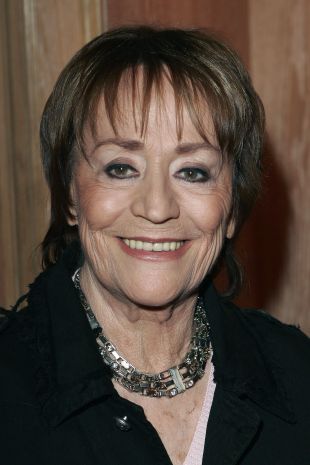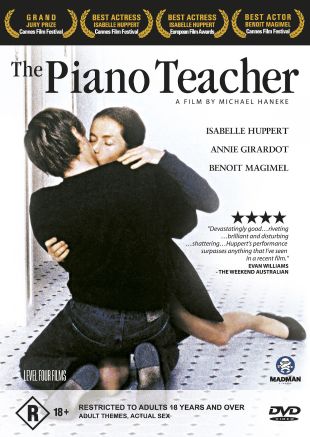More handsome than beautiful, versatile Annie Girardot was one of the most popular female stars in France during the 1970s. Girardot typically played strong-willed, independent, hard-working, and often lonely women, imbuing her characters with an earthiness and reality that endeared her with women undergoing similar daily struggles. It is small wonder, then, that Girardot became one of the symbols of the early-'70s feminist movement in France.
Girardot made her professional debut with the distinguished Comedie-Francaise theater troupe in 1954 after she graduated with honors from the Conservatoire de Paris. She remained with the troupe through 1957, occasionally taking time off to perform on radio, television, and in Parisian nightclubs. She made an inauspicious film debut in Trieze a Table in 1955. In early roles, Girardot was typically cast as doomed women of dubious origins in dark films, but she didn't make much impact until she played Nadia, a prostitute whom meets a tragic end in Luchino Visconti's Rocco et Ses Freres (Rocco and His Brothers) (1960). During filming she became romantically linked with co-star Renato Salvatori, who played the character who stabbed her character 13 times. They married, but divorced many years later.
Through the early '60s, Girardot played leads in a few Italian pictures directed by either Visconti or Marco Ferreri. Girardot also played leads in numerous run-of-the-mill French films. After 15 years, Girardot finally became a star when she was cast as the tragic teacher Danielle in Andre Cayatte's Mourir d'Aimer (Death of Love) (1970), the fact-based tale of a middle-aged teacher whose affair with a much younger student made her the object of bourgeoisie ridicule and harassment and led her to suicide. Though she appeared in many dramas during the '60s and '70s, Girardot never forgot her Comedie Francaise experiences and proved herself an adept comedienne in such films as La Vielle Fille (1971), Cause Toujours Tu M'Interesses (1979), and Tendre Poulet (1977). Through the '70s and into the early 1980s, she worked with some of her country's best directors, and she also occasionally turned up with supporting roles in English-language productions, such as a memorable turn as the French teacher in the Gene Hackman-Barbra Streisand comedy All Night Long (1981). By the mid-late '80s however, her career was in sharp decline and her film appearances became sporadic. In 1995, Girardot did experience a brief comeback playing a peasant wife in Claude Lelouch's Les Misérables. The role won her a Cesar (the French Oscar) for Best Actress. Upon accepting the award, a joyous and tearful Girardot expressed her happiness that she had not been forgotten. She also offered her heartfelt thanks to her many film industry colleagues.
In subsequent years, Girardot predominantly retired from the screen. She developed Alzheimer's Disease, which further crippled her inability to act. Upon the actress's death at age 79 in Paris, French president Nicolas Sarkozy referenced one of her final projects - her participation in a documentary about Alzheimer's - as a testament to the strength of her magnanimity.



